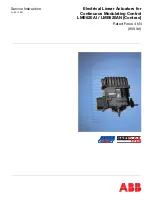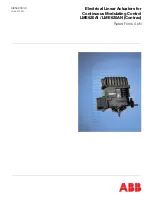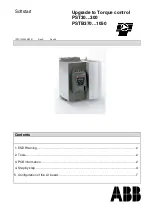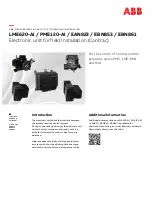
Date: April, 2016 Doc No: PS-M-0433 Ver. A Page - 3 - of 10
1.
DISCLAIMER OF LIABILITY
The installation, handling and use of Trina Solar Crystalline series modules are beyond company control. Accordingly,
Trina Solar does not assume responsibility for loss, damage, injury or expense resulting from improper installation, handling,
use or maintenance.
Trina Solar assumes no responsibility for any infringement of patents or other rights of third parties that may result from use
of the module. No license is granted by implication or under any patent or patent rights.
Specifications included in this manual are subject to change without prior notice.
2.
SAFETY PRECAUTIONS
1.
When designing the PV system, please always take into consideration the variation of the voltage under different
temperatures (please check the respective temperature coefficients of the modules, the Voc of the modules will rise
when the temperature drops);
2.
We require that every series PV module string should be fused prior to be connected with other strings. For the
maximum fuse rate, please refer to the detailed SPEC in the last page.
3.
Solar photovoltaic (PV) modules generate electricity when exposed to light. An array of many modules can cause lethal
shocks and/or burn hazards. Only authorized and trained personnel should have access to the modules.
4.
Use properly insulated tools and appropriate protective equipment to reduce risk of electric shock.
5.
Do not stand or step on the module.
6.
Do not damage or scratch the front or backside surfaces of the module.
7.
Never use a module with broken glass or top substrate. Broken modules should not be repaired and contact with any
module surface can lead to electrical shock.
8.
Do not disassemble the modules or remove any part of the module.
9.
Protect plug contacts against soiling and do not make any plug connections using soiled plug contacts.
10.
Do not install or handle modules when they are wet or during periods of high wind.
11.
Do not connect cable from the positive terminal to the positive terminal of one single PV module.
12.
Make sure connectors have no gap between insulators. A gap can cause fire hazard and/or danger of an electrical shock.
13.
Make sure that the polarity of each module or a string is not reversed relative to the other the modules or strings.
14.
Artificially concentrated sunlight should not be used on the PV module.
15.
In markets conforming to IEC standard, maximum system voltage must not exceed 1500V DC. In markets conforming
to UL standard, maximum system voltage must not exceed 1000V DC. For roof use, the maximum system voltage must
not exceed 600V according to National Electrical Code.
16.
Under normal conditions, a photovoltaic module is likely to experience conditions that produce more current and/or
voltage than reported at standard test conditions. The requirements of the National Electrical Code (NEC) in Article
690 shall be followed to address these increased outputs. In installations not under the requirements of the NEC, the
values of ISC and VOC marked on this module should be multiplied by a factor of 1.25 when determining component
voltage ratings, conductor ampacities , over-current device ratings, and size of controls connected to the PV output.
17.
Our module application class is class A, modules rated for use in this application class may be used in systems
operating at greater than 50V DC or 320W, where general contact access is anticipated.
18.
Installation shall be in accordance with CSA C22.1, Safety Standard for Electrical Installations, Canadian Electrical
Code, Part 1.
19.
A module with exposed conductive parts is considered to be in compliance with IEC&UL 1703 only when it is
electrically grounded in accordance with the instructions presented below and the requirements of the National
Electrical Code.
20.
Module achieved fire rating
Type 13
according UL1703 updated on 20
th
May 2014. And this fire rating of this module
is valid only when mounted in the manner specified in the mechanical mounting instruction.
21.
The system fire rating should be evaluated with roof cover and mounting racking.
3.
UNPACKING AND STORAGE
1.
Before installation, keep all modules and electrical contacts clean and dry.
2.
If it is necessary to store modules temporarily, a dry, ventilated room should be used.
3.
When unpacking, carry modules with both hands. Do not place modules on top of each other.
4.
The double glass module is should be handle carefully, so non-slip gloves are required when handling and installation.
5.
Please use the supporting removal tool when dismantling the plywood cases.




























